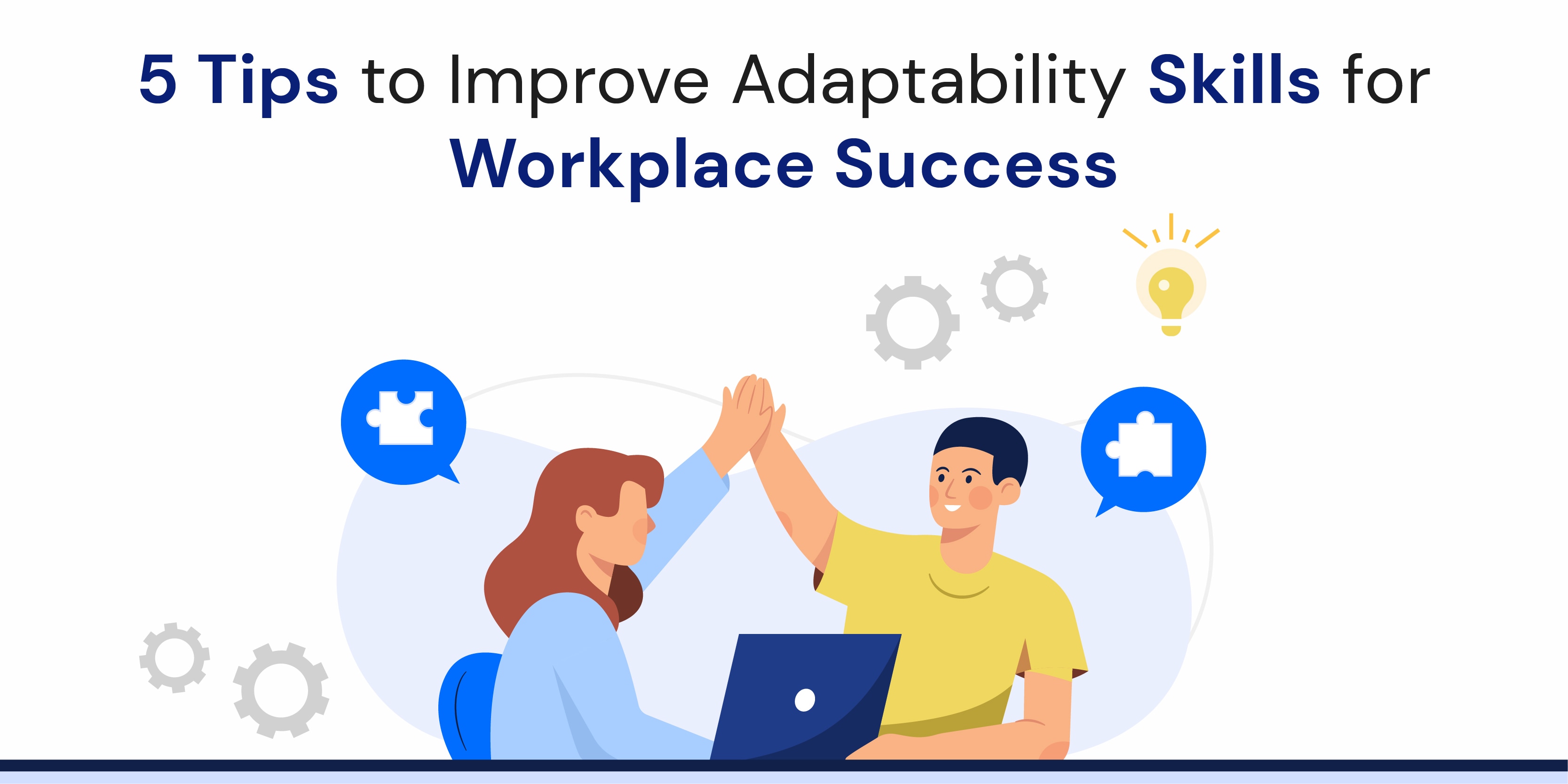
It is not the strongest of the species that survives, nor the most intelligent, it is the one that is most adaptable to change.
- Charles Darwin
Change is constant and nothing new, but we live in a fast-paced digital world now.
Be it software, a car, or a smartphone. There’s always an upgraded version or a new product out there – even though some can be majorly disappointing.
For example, the recent Apple event left many flustered, leaving harsh comments like:
Death of smartphone innovation”.
C’mon, you know what we’re talking about!
Anyhow, as we already know, everything is constantly evolving;
EVERY SECOND, EVERY MINUTE, EVERY DAY.
Yet, one thing that remains constant is the need for adaptability.
This article will talk about adaptability, why it’s so essential for the modern-day business environment, and how to improve your adaptability skills for workplace success. Let’s get started!
What is Adaptability?
Adaptability comes from the word ‘adapt’, meaning ‘to adjust’ or ‘accommodate.’ It is one of the most valuable human skills in today’s workforce.
Adaptability means that you are ready to respond to a change. It could be an innovation, destabilization, market shifts, etc.
What Are Adaptability Skills?
Adaptability skills are the qualities one possesses that allow one to adjust to the changes occurring around them. You are adaptable at work if you can respond to the changing ideas, expectations, responsibilities, strategies, trends, etc.
Adaptability skills can include various qualities or skill sets that help you adapt and respond to change proactively and positively.
Jeff Boss identifies 14 Signs of an Adaptable Person in an article published in Forbes. A few of these traits include curiosity, open-mindedness, resourcefulness, thinking ahead, not whining, and self-talking.
Other examples of adaptability soft skills include:
Types Of Adaptability Skills |
|||
| 1 | Communication Skills | Active Listening | |
| Non-Verbal Skills | |||
| Verbal Skills | |||
| 2 | Interpersonal Skills | Responsibility | |
| Dependability | |||
| Patience | |||
| 3 | Problem-Solving Skills | Analytical Thinking | |
| Level Headedness | |||
| Initiative | |||
| 4 | Creative And Strategic Thinking Skills | Lateral Thinking | |
| Open-Mindedness | |||
| Analysis And Inference | |||
| 5 | Teamwork Skills | Leaderships | |
| Collaboration | |||
| Communication | |||
| 6 | Organizational Skills | Time Management | |
| Delegation | |||
| Motivation | |||
Before we move on, let’s clarify a few things first. Many people use adaptability and flexibility interchangeably but there are slight differences between the two. Let’s talk about them!
Relationship Between Flexibility and Adaptability
Flexibility and Adaptability are two peas of the same pod – they go hand in hand.
You cannot be adaptable if you are not flexible. Adaptability is the willingness to take charge and positively respond to changing trends.
At the same time, flexibility is the willingness to change your thought pattern, behavior, and perceptions to ‘meet others halfway’ procedurally.
Thus, to be more adaptable, you have to become flexible.
How To Be More Flexible At Work? |
||
| 1 | Willingness to fit the culture | |
| 2 | Acquiring new skills and diversifying knowledge | |
| 3 | Modifying behavior when required | |
| 4 | Shifting priorities in response to the demands of a situation | |
| 5 | Looking forward to new challenges and opportunities | |
Now, let’s discuss the importance of adaptability in today’s business environment.
Adaptability and Dynamic Business Environment
Industrialization, digitization, and automation are constantly changing the business dynamics. Add social unrest, massive economic disruption, the looming threat of climate, and a global pandemic to it; it is enough to make anyone feel overwhelmed. Like the world around is spinning out of control.
In short, the world operates differently now, and the patterns of change, themselves, are shifting – especially in the business world.
According to John Seely, the world is in constant disequilibrium – a state of continuous, rapid, disruptive changes with short periods of stability. The only way to survive in such a dynamic environment is to learn how to react to change.
Ultimately, It all comes down to one thing: Adaptability.
Thus, this soft skill is a must-have in the modern business era of risk and instability.
The Importance of Workplace Adaptability Skills
Not long ago, employers did not pay much attention to soft skills. Now, employers have realized that hard skills alone are not enough to meet the challenges of today’s dynamic business environment.
Therefore, nowadays, there is a lot of emphasis on soft skills such as communication, negotiation, interaction, critical thinking, creativity, and of course, adaptability.
Over 60 percent of employers acknowledge that adaptability is a key soft skill that has increased in importance over the last decade (Source: Barclays).
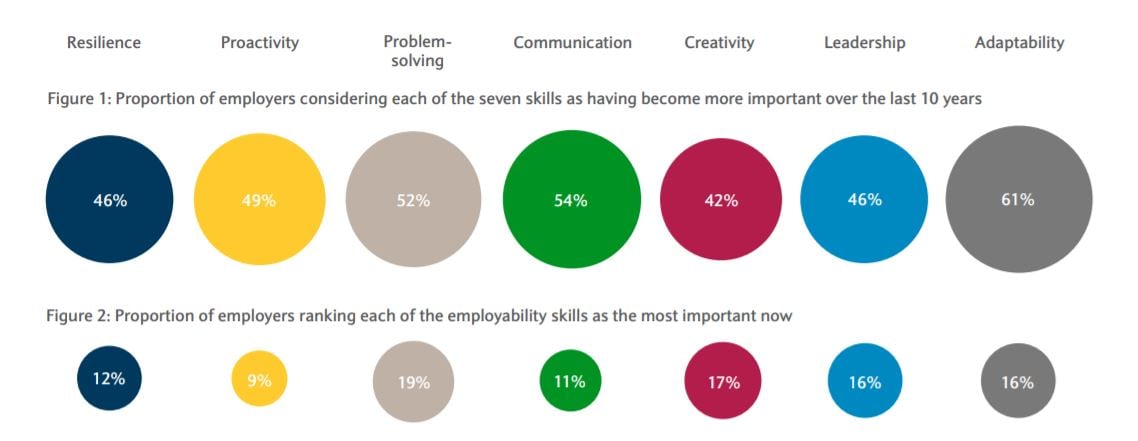
Adaptability skills prepare you:
- for change
As an employee, your ability to proactively respond to change will make you a valuable asset to your workplace.
- for unforeseen events and trends
Will you welcome the unseen and take advantage of the new opportunities, or will you struggle and give up?
- and how to deal with the change
As most businesses today are in a state of flux, you can only move forward if you think differently, find a solution, and adapt.
The employees who are inflexible and stick to the old/standard ways eventually fail and drag the business down with them.
Now, let’s talk about how you can succeed at your workplace by improving your adaptability skills!
Tips For Improving Adaptability Skills
Following are 7 useful tips to improve your adaptability at work to equip yourself for any challenge:
1. Get Comfortable with Change
"Change or Die."
Alan Deutschman is not an entrepreneur by trade, but his words echo in today's business world more than ever. We live in the fastest-changing century and technological landscape today.
Can you imagine, Facebook didn't even exist up until a few years ago? Now, 2.85 billion people use it across the globe every day. Who even saw that coming?!
That's the fascinating (yet daunting) thing about change: You cannot control it.
You can't always know or control what tomorrow brings. BUT you can control how you react to the new change.
So, how do you become comfortable with change?
How To Embrace Change At Work? |
||
| 1 | Take risks | |
| 2 | Be flexible and don’t resist change | |
| 3 | Pay attention to new opportunities | |
| 4 | Don’t give up and keep learning | |
| 5 | Build a support team | |
2. Be Confident but Open to Improvement
All successful people have one common trait: confidence. But overconfidence can have the opposite impact.
Employees need to be aware of any gaps between desired performance and actual performance. This is why it is important to be open to criticism.
Be open to feedback and accept your shortcomings. Dismissing or underestimating the need to improve will stutter your growth.
How To Become More Confident At Work? |
||
| 1 | Monitor your progress | |
| 2 | Focus on your strengths | |
| 3 | Ask questions and gain knowledge | |
| 4 | Leave your comfort zone and experiment | |
| 5 | Learn from your mistakes | |
3. Embrace Learning
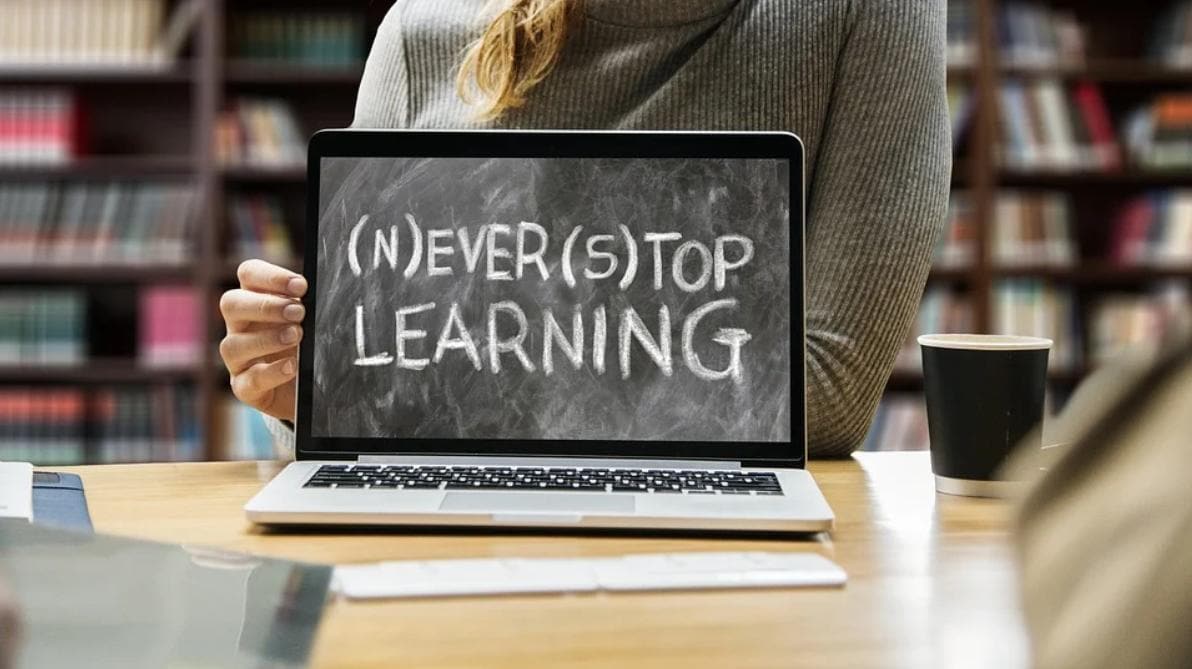
Continuous learning at work is imperative to growing your business in today's ever-evolving business ecosystem. It helps you tap into your full potential and prepares you to keep up with the changing trends.
According to McKinsey, up to 375 million workers worldwide will need to change roles or learn new skills by 2030.
All of this is a no-brainer. If you want to be successful at work, you have to challenge yourself and learn current skills and knowledge throughout your career.
By embracing a culture of learning at work, you can acquire, apply and share new skills and knowledge, allowing you to perform better. It also gives you a competitive edge over your colleagues.
How To Embrace Learning At Workplace? |
||
| 1 | Developing a growth mindset | |
| 2 | Investing in personalized training | |
| 3 | Taking interactive webinars, courses, and apprenticeships | |
| 4 | Reading the latest market reports | |
| 5 | Learning about current and future trends | |
4. Develop A Growth Mindset
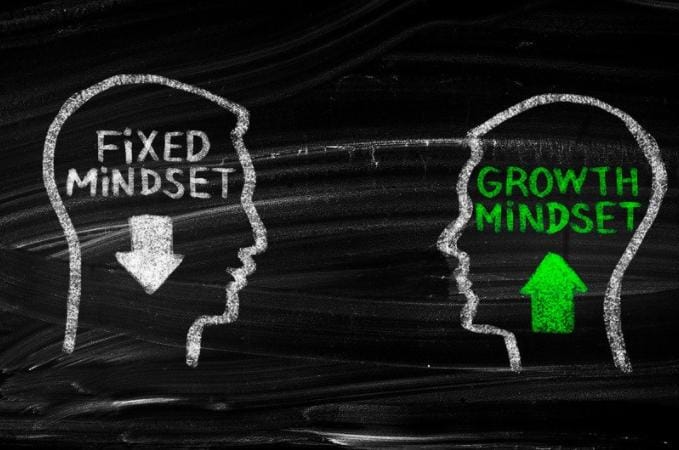
Having a growth mindset will make you more adaptable and competitive in a changing workplace. Let’s find out how!
We can't discuss the concept of mindset without mentioning Mindset: The New Psychology of Success by Carol S. Dweck.
After years of research and analyzing the staff of seven Fortune 1000 companies, the world-renowned Stanford psychologist discovered the power of mindset.
In her book, she talks about how we can grow our talents and abilities by harnessing the power of a growth mentality.
According to Carol, there are two types of employees:
-
People with a growth mindset – believe in developing their thoughts, abilities, and skills through dedication and hard work. They seek learning, embrace failure and see change as an opportunity to grow.
-
People with a fixed mindset – tend to avoid challenges, ignore constructive criticism, and feel threatened by others' success.
How To Develop A Growth Mindset At Work? |
||
| 1 | Reflect and foster grit | |
| 2 | Set learning goals and performing goals | |
| 3 | Constantly challenge yourself | |
| 4 | Be optimistic and believe in yourself | |
| 5 | Ask for constructive criticism and improvement feedback | |
5. Set Goals

When it comes to chasing adaptability and workplace growth, one of the most effective tips is goal setting. Just writing down goals is 42% more effective than keeping them stored in your head (Source: Forbes).
Goal setting allows you to track your progress and accomplishments by setting milestones. Moreover, goals give you momentum to push through adversities you experience in the workplace.
For example, if you feel like you need to improve your non-verbal skills or you tend to avoid challenging tasks, you should set goals to work on these shortcomings. Why?
Because by improving these abilities you can improve adaptability at work and become more productive.
Thus, goal setting can help in achieving various milestones that in turn improve the adaptability workplace.
How To Set Goals At Work? |
||
| 1 | Set attainable goals | |
| 2 | Set consistent short term goals | |
| 3 | Determine the key actions needed to achieve the set goals | |
| 4 | Assign a realistic timeframe | |
| 5 | Track your progress | |
3 Examples of Adaptability Skills
Here are a few common adaptability examples to practice at the workplace:
1. Active Communication
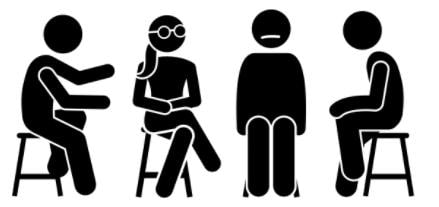
While many factors help you become adaptable, one of the most critical is communication. You can’t adapt to change without effectively communicating your thoughts, ideas, and reservations. So, actively communicating with your supervisors and coworkers helps you become more adaptable.
However, Covid-19 and the ‘work from home’ situation have created a lot of communication barriers at work.
But Wondershare PDFelement Cloud is a great tool to enhance online communication with your coworkers. It is a project management tool that allows you to collaborate in a document cloud.
This keeps everyone up to date with each other, improving communication and productivity of the whole team.
Active communication involves:
-
Active Listening
-
Emotional Intelligence
-
Paying attention to nonverbal cues
-
Self-Awareness
-
Coordinating with others
2. Problem-Solving

Adaptability instills problem-solving abilities. It helps you deal with the arising problems rationally without compromising productivity.
Problem-solving abilities include:
-
Brainstorming
-
Decision making
-
Data analysis
-
Logical Reasoning
-
Team working and coordination
3. Resourcefulness
An adaptable person is always resourceful and utilizes all the means and tools at their disposal. Thus, trying to reach the end result in the best way possible.
Resourcefulness includes:
-
Innovation
-
Confidence
-
Creativity
-
Research
-
Open-mindedness
Summing Up
There are three fundamental tenets behind a successful business future: trust, adaptability, and autonomy. The working world has changed immensely over the last few decades, and it continues to evolve. It is only by adapting to the rapidly changing future that you will perform your best.
So, follow the tips mentioned above to improve your adaptability skills and become successful at the workplace!


